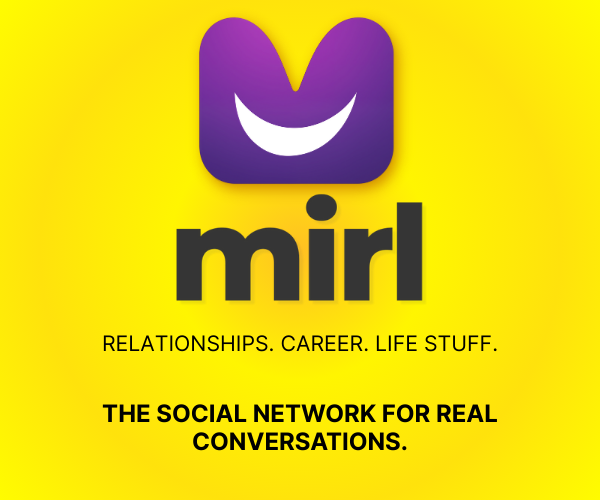Fear of Confrontation: What It Is, How It Feels & 23 Secrets to Overcome it

Fearing confrontation is incredibly common, but that doesn’t mean you have to let it hold you back. Here are 15 tips to liberate yourself from your fear.
Some people have a fear of snakes, spiders, butterflies, heights, fires, and some people have a fear of confrontation. Everyone’s afraid of something. And even though confrontation may not be as life-threatening as heights, fires, or snakes, it’s still a very valid fear that can render people immobile.
But while no one likes confrontation, a fear of it that leads you to avoid it will have you living a life that’s unfair to you. It will allow people to walk all over you, put you in uncomfortable situations time and time again, and ultimately, it will make your life harder than it has to be.
But don’t worry, we have the tips and tricks you need to beat this confrontation fear. All you have to do is read on! [Read: 23 secrets to set personal boundaries and guide others to respect them]
What is a fear of confrontation?
You’d be hard-pressed to find someone who says that they love confrontation, and there’s a good reason for that. People wouldn’t generally seek out these types of situations unless they’re trying to prove something or unless they just like firing up the drama.
But just not liking it is far different from actually fearing it. So, what is a fear of confrontation?
Well, it’s exactly like any other phobia, just directed at confrontation. Someone with a fear of confrontation might experience anxiety in the face of a confrontation, or even at the thought of one.
And they’ll usually do whatever it takes to avoid it, even if it comes to the detriment of their happiness, success, relationships, or quality of life.
What can cause a fear of confrontation?
Fear is a natural part of a person’s survival instinct. If we weren’t afraid of pain or heights or huge, hungry animals, our entire species would be done for.
However, though confrontation may not be crucial for one’s survival, the fear of it can be embedded into a person’s mind through their experiences in the past.
So if you’re trying to understand why you or someone else is so afraid of facing off, the following reasons may provide you with a bit of insight.
1. You fear confrontation due to your upbringing
If you’ve had something traumatic happen to you that involved yelling, fighting, negativity, and anything that caused you pain and made you want to run and hide, it’s understandable why you fear confrontation.
You may associate any type of confrontation, no matter how civil, with your experiences in the past. [Read: 47 hurtful signs and effects of being the daughter of a narcissistic mother]
2. You fear confrontation because you fear failure
You are afraid of being wrong or failing, especially when it’s in front of other people.
When a verbal fight breaks out, letting your mouth get ahead of your head is easy. And when this happens, you may inadvertently find yourself saying everything you thought you’d never say out loud.
Couple this embarrassment with being proven wrong or being shot down, and that’s motivation enough to scurry away from confrontation before it even starts! [Read: 42 secrets to communicate better in a relationship and ways to fix a lack of it]
3. You’re afraid you might not be liked
Nobody goes out of their way to be disliked by other people. Even if you’re not too big on the idea of making everyone like you, there’s still a part of you that makes you hope that no one ends up outright hating you.
Sadly, confrontations may rub people the wrong way, no matter how professionally or how calmly you go about it. You may not be afraid of confronting someone, per se, but you may be scared that they’ll like you a lot less after you confront them. [Read: Easy ways to avoid a first impression catastrophe]
4. You’re outnumbered
Perhaps if you had to confront other people as a group, you wouldn’t be as scared. But when it’s just you against a whole bunch of people, that fear can be pretty hard to shake off!
Standing up for yourself is hard enough in front of people who are looking to shoot you down, but trying to stand up for yourself while arguing with a group of irrational people is probably even scarier for you.
5. You’re not confident in delivering
Many of us can be great at one subject and horrible at another. If you’re a great writer, but a terrible public speaker, it’s okay.
It’s quite common to meet people who are very adept at what they do, but when asked to stand in front of an audience to explain the same thing, they’d bolt in a snap.
So if you are someone who is usually very level-headed and great at thinking through things, but you fear having to stand up and talk out loud about them, it makes sense why you wouldn’t want to have to deal with a situation that involves confrontation.
You like to think about things, process what’s going on, and if you get thrown into a situation that is hostile, you probably can’t use your logic the way you normally would.
6. You speak before listening
You know yourself well enough to know that your mouth can sometimes get carried away, especially when emotions are involved.
The idea of confrontation brings to mind those times when you simply had to let your emotions out so you spared no time listening to the arguments of the other party.
In turn, it just made you look like a loudmouthed drama queen who doesn’t know how to listen to the person they’re confronting. So if you are someone who has a personality similar to this, it’s also probably why you fear confrontation.
You would rather just not talk at all than risk saying things you don’t even mean, but they fly off your tongue anyway. [Read: Simple tips to avoid being rude in any situation]
7. You’re afraid of being judged
Even the most confident people in the world don’t like being judged.
However, the difference between them and someone so afraid of the judgment that they avoid conflict at all costs is that the confident person knows that someone else’s judgment does not reflect on them.
If anything, what someone might judge you for is really a reflection of their own issues. So, although you may feel like your fear of judgment is holding you back, it can actually propel you forward.
8. You think you’re not good enough
If you have low self-esteem, voicing your opinions to people you know will disagree with you is a challenge. In fact, it can feel pointless.
If you don’t have a great sense of self, facing confrontation can make you question yourself: “Am I wrong?” “Do they know more than me?” “Are they smarter than me?”
It rarely is the case that the person you’re up against is actually smarter, more reasonable, or otherwise “better” than you, but when you don’t believe in yourself, it can be hard to tell yourself otherwise.
Is it bad to avoid confrontation, and when is it okay?
Typically, we’d say that it’s not a good idea to avoid confrontation in the long run. Every time you push your feelings aside, you’re letting them build and build and build. All the while, the other person doesn’t even know what they’re doing to upset you, so they’ll keep doing it.
In an ideal world, you should never avoid confrontation. However, there are certain situations when avoiding confrontation is actually better than facing it head-on.
For instance, if you think that confronting your boss is less likely to bring about a happy compromise for the two of you and is more likely to get you fired and jeopardize your career, it’s not worth it.
Similarly, if the person you need to confront is particularly emotionally agitated, it’s best to leave the confrontation until later when they’ve calmed down.
Things you can do to confront your fear of confrontation now
Pinpointing where your fear of confrontation comes from is the first step in overcoming it. But now that you’ve done that, what’s next?
Don’t worry we’ve got you covered. Follow these tips and you’ll feel free to voice your opinions, no matter what opposition you know you’ll face.
1. What do you think confrontation is?
If you think that confrontation is something that it isn’t, of course, you’re going to be afraid of it. So, before you do anything else to overcome your fear, first you should reconsider what you think confrontation is.
People who are afraid of confrontation think of it as a rejection, a sign that someone is judging you for your opinions, or the start of the end of a relationship. But that’s not true at all. Confrontation is healthy and natural. We all experience it, and we all expect to experience it at some point.
When you realize that it’s just a natural part of human interaction and that most people in your life will move on from conflict as if it never happened, you won’t fear it as much. [Read: Fear of rejection – 56 signs, causes, and ways to overcome and get over it]
2. Understand how you physically react to confrontation
Maybe you fear confrontation because you know that your body will uncontrollably react in a way that embarrasses you. Perhaps your cheeks flush bright red, your voice uncontrollably wavers, or you can’t help but tear up.
These, and more, are all signs that you’re getting anxious. Just take a second, control your breathing, and remind yourself to stay calm.
Understanding that your body is reacting in response to anxiety can help you to get it under control and face your fear calmly and head-on. [Read: Signs of anxiety – how to read the signs ASAP and handle them better]
3. Start small
You don’t need to immediately confront your school or workplace bully, that’s too much too soon! But, you can start small with people that you trust.
Even just learning how to say “no” every once in a while can make you feel more comfortable with standing your ground.
4. View every confrontation as a learning opportunity
When you stop fearing confrontation, you’ll actually realize that it’s a pretty good thing. We all have different opinions, and entering a respectful debate with someone who sees the world differently from you can actually be an incredible chance to learn something new.
Even if you find yourself butting heads with someone who won’t give you the decency to hear you out, you’ll still learn more about who you are and what kind of person you are compared to others. [Read: How to be a good person and 32 ways to transform into a better human]
5. Roleplay
Ask a close friend or family member to help you rehearse a confrontation. At first, it may feel silly, and you might not be able to go through with this without laughing, but maybe that’s just what you need!
Confrontation doesn’t have to be scary. If you can learn to laugh at it, the gravity of the seriousness and the heavy weight of the fear surrounding it will lift off of you.
If a good laugh isn’t what you need to overcome your fear of confrontation, rehearsing it in a safe environment can at least help you become familiar enough with it not to feel anxious when you find yourself in the real deal.
6. Hit the gym
Maybe confrontation scares you because every time you enter it, you feel somehow unprepared. Well, one way to become over-prepared for a confrontation is to take up a martial art or self-defense class. [Read: 26 secrets to get motivated to workout and exercise your way to a better life]
Obviously, we’re not condoning violence in any way! If you do find yourself in a heated confrontation that you think could turn physical, it’s best to de-escalate the situation or just walk away.
But still, knowing that you could take this guy might be enough to calm your nerves.
7. Remind yourself why confrontation is good
It’s very easy to tunnel vision on your fears and all the reasons why they make you uncomfortable. But, remind yourself what good can come from confrontation.
It gives you a chance to express your opinions, it can resolve problems before they even become problems, and it can enrich your relationships.
It may be hard at first, but embracing confrontation can actually be the key to peace and happiness in your life. [Read: 70 true secrets to happiness to have a happy life and enjoy everything you do]
How to deal with confrontation when you’re in one
We’ve covered some ground on how you can work on improving the anxiety you feel around confrontations in your own time, but that’s not enough. You also need to know how to deal with a confrontation when it’s staring you in the face.
It may sound daunting now, but with these tips, you’ll be able to fly through any confrontation with ease.
1. Do some research in advance
This takes some foresight, but if you know that you’re going to be in the company of a particularly opinionated and combative person, it might do you some good to read up on topics you know are going to come up.
A great general rule of thumb is to stay up to date with the news of the world. Read up on a few opinions around current topics so that you get a real understanding of your opinion and how you landed there. [Read: 84 intellectual, deep conversation starters and topics to bond with anyone]
Also, if there is a particular hill that you feel passionate about, such as feminism, anti-racism, gun control, or some other controversial topic you feel strongly about, make sure that you know what you’re talking about.
Some people just love to tear others down by pointing holes in their knowledge, but if you prepare for that, you have a stronger foot to stand on.
2. Work on your expression
Preparing the knowledge to back yourself is a great step to feeling empowered in a confrontation. But you need to know exactly how you want to deliver the information if you want to ace any difficult conversation.
The general rule of thumb is to express yourself clearly and concisely.
Make your point easy to understand, avoid using any blaming language, and don’t resort to low-blows or name-calling. Sarcasm and passive-aggressive comments also have no place in a confrontation.
Deliver your points clearly, factually, and without strong emotion. If you see your opponent attacking your intelligence, replying sarcastically, or scoffing at you, don’t worry—you’re winning. [Read: Relationship arguments – 38 tips and ways to fight fair and grow closer in love]
3. Know what you want out of a confrontation
Knowing what your desired outcome of this difficult conversation is can be key to keeping it on track. Confrontations can very easily become emotional. And with high emotions flying around, it can be easy to get off track, escalating the situation into something it just doesn’t need to be, or getting stuck in a loop where you’re contradicting yourself.
The best way to avoid that is to know what your goal is. Are you trying to convince them of a different viewpoint? Are you trying to stand up for your own beliefs? Or are you trying to explain something to someone whose opinions you think are born from ignorance?
When you know what you’re trying to do, it can help you to know when to call it quits. That way, you won’t have to hurt any relationships and you two can walk away amicably. [Read: Are relationship fights normal? 15 signs you’re fighting too often]
4. Prepare some solutions
We’re assuming that you want to preserve this relationship as much as possible. And you can easily do that, no matter how different your opinions are, so long as you prepare some solutions.
If you find yourselves butting heads with no chance of either of you budging, you can just agree to disagree.
Agree that some topics are better left untouched by the two of you, and respect each other’s opinions and boundaries.
5. Learn how to de-escalate a situation
When confrontations become heated, they become ugly. In reality, you might not be afraid of confrontation but rather a heated confrontation, which is fair enough!
So, how can you avoid a confrontation from getting ugly? By practicing some of these tips:
a. Stay relaxed – If you become agitated, so will the other person. So, keep your facial muscles relaxed, your body lax, and your voice even and level. Oh, and keep your hands by your side. Pointing is rude.
b. Listen – When we feel like someone isn’t listening to us it can make us feel agitated and defensive. So, don’t interrupt them, don’t talk over them, and really show that you’re listening to what they’re saying. Acknowledge their points and show that you respect their opinions.
c. Don’t say “calm down” – Have you ever known this to work? It comes across as disrespectful and patronizing, so don’t tell someone to calm down. If anything, it will annoy them more!
d. Time out – If you feel like the conversation is stuck in a loop, or you’re doing nothing but heightening emotions, then suggest taking a 10-minute time out to cool off.
6. Prepare a statement
How are you going to initiate the confrontation? The opening can be the key to setting the tone for the rest of the conversation, so preparing what you’re going to say can be a big help to keep things under control.
You don’t need to script out everything you’re going to say. But if you prepare a rough idea of what your first sentence is going to be that brings up your point without attacking their difference in opinions, you can really start this confrontation on a good note.
7. Bring along a mediator
Some people are just too difficult to deal with. But, unfortunately, you also can’t avoid them forever. So, if you know that you need to confront a particularly difficult or stubborn person, you can bring along a mutual acquaintance or friend to mediate.
They can be there to make sure that the conversation stays on topic, that the other person doesn’t throw out harmful insults, and that your side gets the attention it deserves.
Having someone you know is there for you can also help calm those nerves. [Read: How not to be nervous – 18 calm ways to eliminate nerves instantly]
8. Prepare for the worst-case scenario
We’re not saying that the worst is going to happen every single time. But, if you always prepare for the worst-case scenario, then it won’t come as a shock to you if it does come around.
If the worst thing was to happen, what would you do? How would you react? What would you say? Knowing what you’ll do in the face of the worst outcome possible will help you to stay calm and handle it like a pro. But hopefully, you won’t have to use that information!
[Read: How to stop overthinking – secrets to go from overthinker to relaxer]
Though confrontation is never really comfortable, it can be inevitable at times. The best way to get through this is to pinpoint the reason you’re afraid of it and work your way up from there.



















